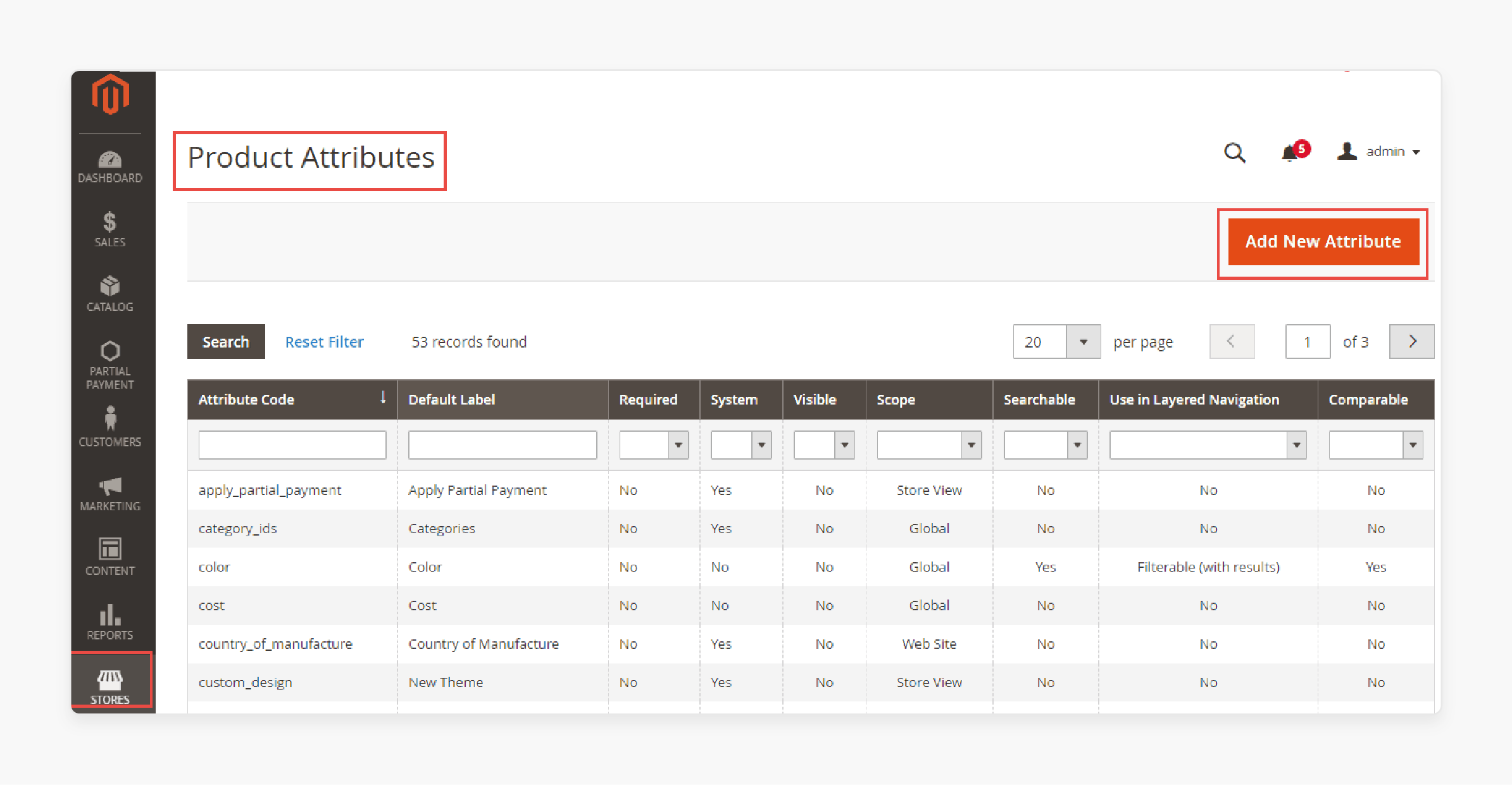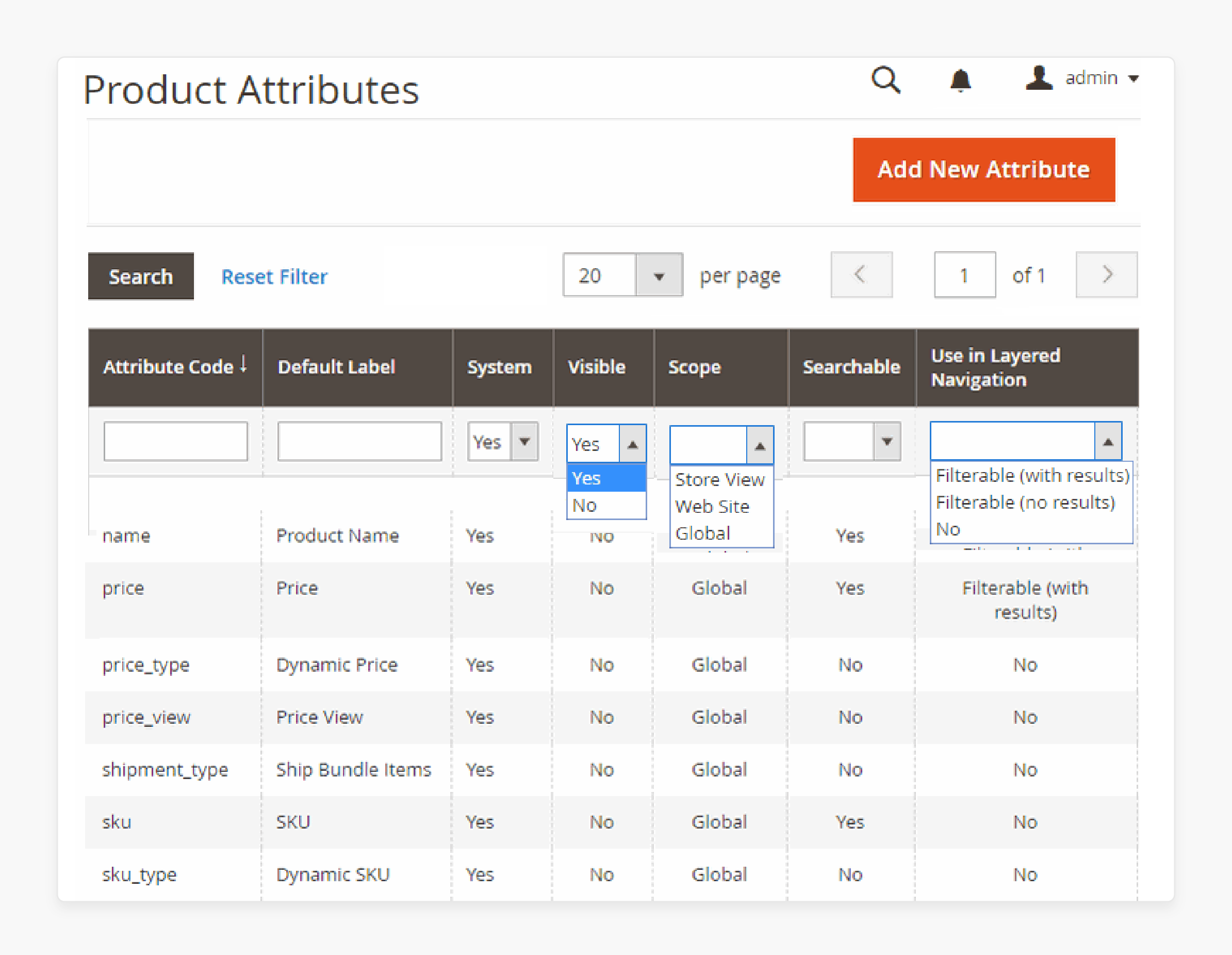
How Magento 2 Get EAV Attribute Value Manages Product Data?
Do you want easy management of your store product data? Magento 2 Get EAV Attribute Value function helps you manage such data. It is flexible and scalable, enabling businesses to handle extensive product catalogs. This article covers how this function works and impacts product data management.
Key Takeaways
-
The Magento 2 Get EAV Attribute Value function retrieves product attributes.
-
It supports both custom and default attributes for products.
-
The EAV model improves product search and filtering capabilities.
-
Custom attributes creation without changing core database structure.
-
The EAV model enhances data consistency and scalability for large product catalogs.
-
How Magento 2 Get EAV Attribute Value Improves Store Organization?
-
How Magento 2 EAV Attributes Enhance Customization and Flexibility?
What is Magento 2 Get EAV Attribute Value?
EAV Model Architecture
How Magento 2 stores product attributes in separate tables
Product Entity
Text Values
Select Values
Date Values
Decimal Values
Add attributes without schema changes
Handles thousands of products efficiently
Separate tables for each data type
Magento 2 uses the EAV model to store product data. The EAV model allows Magento to store size, color, and material attributes.
Each product comprises its own set of attributes. Magento stores them in separate tables for flexibility. This system supports large product catalogs. The Get EAV Attribute Value function retrieves these attribute values for a product.
-
It retrieves values from the database.
-
The function belongs to the product model.
-
It works with custom and default attributes.
-
It handles different attribute types like text, date, and dropdown.
Get EAV Attribute Value allows quick access to product data. It makes managing product details easier. This function is key for filtering or displaying products based on attributes.
How Magento 2 EAV Model Simplifies Product Data Management?
EAV Model Benefits
Why Magento 2 chooses EAV for product data management
Flexibility
Add or change attributes without changing the product model
Supports various attribute types
Manage different product types and variants
Key Benefit
Adapts to changing product needs
Scalability
Separate attribute storage prevents system slowdowns
Handles thousands of products
Supports growing inventories
Key Benefit
Grows with large catalogs
Customization
Create custom fields without changing core database
Add attributes for unique product features
Adapts to different business requirements
Key Benefit
Keep up with trends
Search & Filtering
Attributes can index for fast retrieval
Sort products by size, color, or other features
Makes finding products easier
Key Benefit
Boosts search performance
Data Management
Simplifies editing and updating product information
Change attributes without affecting core data
Ensures changes reflect in real-time
Key Benefit
Reduces data errors
User Experience
Improve product filtering
Attributes indexing for faster search
Navigation becomes simple and quick
Key Benefit
Enhances shopping experience
EAV Model Impact
Custom Attributes
Products Supported
Attribute Types
Data Updates
1. Flexible Attribute Structure
Magento 2 stores product attributes in separate tables. Each attribute has its own database entry. This system allows easy customization. You can add or change attributes without changing the product model. It supports various attribute types like text, dropdowns, and dates. Businesses can manage different product types and variants.
2. Scalability
The EAV model helps e-store scale with large Magento catalogs. Each attribute's separate storage occurs. It prevents system slowdowns. It reduces database complexity. Magento can handle thousands of products. This structure supports growing inventories.
3. Customizable Product Data
Magento 2 allows custom attributes for specific needs. You can add attributes for unique product features. The EAV model manages custom data well. It adapts to different business requirements. It helps businesses keep up with trends. You can create custom fields without changing the core database.
4. Improved Search and Filtering
The EAV model improves product search and filtering. Attributes can index for fast retrieval. Customers can sort products by size, color, or other features. The separation of attributes boosts search performance. It allows Magento 2 to retrieve data faster. It makes finding products easier.
5. Easier Data Management
The EAV model organizes product data well. It simplifies editing and updating product information. Admins can change attributes without affecting core data. This structure improves data organization. It ensures changes reflect. The EAV model reduces data errors.
Impact of Magento EAV Attributes on Product Information
| EAV Attribute | Explanation |
|---|---|
| Flexibility | Magento 2 uses EAV attributes to store data in separate tables. You can add or change attributes without changing the product model. It supports various attribute types. It helps businesses manage many product types and variants. The system adapts to changing product needs. |
| Scalability | The EAV model supports large product catalogs. Attributes separate storage occurs. Adding more products does not slow down the system. It improves database performance. Magento grows with the catalog. |
| Customization | Magento 2 lets you create custom attributes. You can set up custom fields for unique product features. The EAV model handles these attributes well. Businesses can adapt to trends or products. Customization does not need core system changes. |
| Search and Filtering | The EAV model improves filtering and searching. It enables filtering by size, color, or material. It speeds up search performance. Customers can find products more. |
| Data Management | The EAV model organizes product data. Magento admins can update attributes without changing core data. It prevents data errors. The system handles large amounts of product information. Changes reflect in real-time across the store. |
How Magento 2 Get EAV Attribute Value Improves Store Organization?
1. Efficient Data Retrieval
The Get EAV Attribute Value function retrieves Magento product attributes. It accesses key details like size, color, or material. Magento stores attributes, which speeds up data retrieval. It reduces the need for many queries. It ensures fast performance even with large catalogs. It improves product information access.
Get EAV Attribute Value Flow
How Magento 2 retrieves product attributes efficiently
Request Attribute Value
EAV Model Processing
Identify attribute type (dropdown)
Determine correct EAV table
Check cache for stored value
Cache Hit
Value found in cache
Return: "Blue"
Response time: ~5ms
Database Query
SELECT value FROM
catalog_product_entity_int
WHERE entity_id = 12345
AND attribute_id = 92
Return Attribute Value
Final Output:
// Returns
"Blue"
Cache Hit Response
Cache Hit Rate
Products Supported
2. Enhanced Product Filtering

It helps filter products by specific attributes. Customers can search by color, size, or price. It makes product discovery faster and easier. The EAV model stores attributes, enabling effective filtering. It improves store organization. Customers find what they need.
3. Streamlined Product Management
It simplifies managing product data. Admins can retrieve and update attributes. It avoids changes to core product data. It reduces errors and ensures data consistency. Managing product details becomes faster and more organized. Store owners save time and effort.
4. Customizable Attributes

Magento 2 lets you create custom attributes for products. The Get EAV Attribute Value function handles these attributes. You can add attributes specific to your store’s needs. The system stores custom attributes for easy access. It helps keep the store organized. Its flexibility supports unique product features.
5. Improved Data Consistency
The Get EAV Attribute Value function ensures data consistency. Each attribute stores in its own table. Changes to product attributes reflects across the store. It prevents data duplication. Admins can be sure that product details remain accurate. It keeps the store organized and professional.
How Magento 2 EAV Attributes Enhance Customization and Flexibility?
1. Support for Custom Attributes
-
Magento 2 creates custom attributes for products.
-
You define attributes based on your needs.
-
Custom attributes represent unique features..
-
The EAV model stores attributes in a separate manner.
-
It ensures flexible data management.
Custom Attribute Creator
Interactive demo of creating custom product attributes
Create New Attribute
Live Preview
Fill in the form to see a preview of your custom attribute
Attribute created successfully!
Generated Code:
// Add custom attribute code
$product->setData('attribute_code', 'value');
$product->save();Popular Custom Attributes
Fabric Care
Text
Warranty Period
Dropdown
Eco Friendly
Yes/No
Volume
Decimal
2. Many Attribute Types

-
Magento 2 supports attribute types like text, dropdown, and date.
-
You create attributes for product needs.
-
Different types help manage product data.
-
Attributes can represent numbers, options, or dates.
-
It gives control over product information.
-
You match attributes to your business model.
Attribute Type Explorer
Discover different attribute types supported by Magento 2 EAV
Text Attribute
Stores single-line or multi-line text values for product information.
Examples:
Dropdown Attribute
Provides predefined options for customers to select from.
Examples:
Date Attribute
Stores date and time information for time-sensitive product data.
Examples:
Decimal Attribute
Stores numeric values with decimal precision for measurements and pricing.
Examples:
Yes/No Attribute
Simple boolean values for product features and flags.
Examples:
Get EAV Attribute Value Example
// Get text attribute value
$productName = $product->getAttributeText('name');
// Returns: "Cotton T-Shirt"
// Get custom attribute value
$material = $product->getData('material');
// Returns: "Cotton, Polyester blend"3. Easy Modification of Product Information
-
The EAV model makes changes easy.
-
Change attributes without affecting other data.
-
Product data stays updated.
-
Admins can update product info.
-
Changes won’t disrupt the Magento catalog.
-
Flexibility grows with business needs.
4. Support for Complex Product Catalogs
-
The EAV model handles complex catalogs.
-
It stores detailed product data.
-
Magento 2 manages products with many attributes.
-
It organizes products with many options.
-
The system works well with large catalogs.
-
Flexibility supports diverse product lines.
EAV Performance Metrics
Real-time performance analysis of Magento 2 EAV system
Query Speed
milliseconds
Cache Hit Rate
percentage
Active Attributes
custom & default
Query Performance Comparison
Catalog Scalability
Small
Medium
Large
Products supported without performance degradation
Attribute Flexibility
Performance Optimization Tip
Enable flat catalog for stores with over 10,000 products to improve attribute retrieval speed. The EAV model automatically indexes frequently accessed attributes for optimal performance.
5. Better User Experience
-
EAV attributes improve product filtering.
-
Customers search by size, color, or other traits.
-
Attributes indexing occurs for faster search.
-
It enhances the shopping experience.
-
Customers find products.
-
Navigation becomes simple and quick.
FAQs
1. What is the EAV model in Magento 2?
The EAV model stores product data in separate tables. It employs features such as size, color, and material. Every product has a list of attributes. This setup allows simple customization and growth.
2. How does the "Get EAV Attribute Value" function work?
The "Get EAV Attribute Value" function retrieves product attributes. It fetches details like size, color, and material. The function works with both default and custom attributes. It simplifies managing and displaying Magento product data.
3. What types of attributes does Magento 2 support?
Magento 2 handles text, dropdown, and date attributes. You can define custom attributes for unique product features. The system adapts to various business needs.
4. How does the EAV model improve product search and filtering?
The EAV model speeds up search and filtering. Attributes indexed for quick access. Customers can sort by size, color, or material. It helps them find products in an easier manner.
5. Is it possible to add custom attributes in Magento 2?
Yes, you can add custom attributes in Magento 2. You can add fields for unique product features. These attributes get separate sorting, keeping flexibility without changing core data.
Summary
The Magento 2 Get EAV Attribute Value changes as per the product attribute handling. It makes management and retrieval straightforward. Here are some key benefits:
-
Fast access to product attributes like size, color, or material.
-
Quick and accurate sorting of products based on attributes.
-
Ability to add custom attributes for unique business needs.
-
Easy updates and maintenance of product details.
-
Strong performance with large product catalogs and complex inventories.
For personalized product data management, consider managed Magento hosting.





